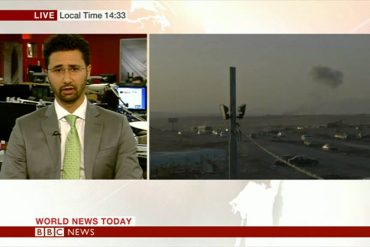1) At the INSS, Eldad Shavit and Sima Shine discuss ‘The Renewal of the Talks on Returning to the Nuclear Deal’.
“The talks on the possibility of returning to the nuclear deal (JCPOA) are supposed to be renewed on November 29. In the background of the publication of the reports of the International Atomic Energy Agency detailing violations by Iran – both of the nuclear deal and of the Treaty on the Non-Proliferation of Nuclear Weapons. At this stage, it is impossible to assess whether the Iranians have decided to return to the talks with the intent of reaching an agreement, or alternatively of proving that Washington is responsible for failing to achieve one. Consequently, the most likely scenario for the coming months is not having a decision while maintaining the diplomatic framework of the talks. The chances of the talks failing are greater than of reaching an understanding, and the administration and elsewhere are already being flooded with alternative ideas, whose feasibility is doubtful.”
2) Jonathan Spyer argues that ‘It’s too soon to write the obituary of the anti-Iran alliance in the Middle East’ at the Fathom Journal.
“A series of events have taken place in the region to reinforce this sense of US drawdown. Among them: The Obama Administration’s failure to enforce stated red lines with regard to the Assad regime’s use of chemical weapons in Syria in August 2013; the same Administration’s decision to quit Iraq in 2011 (before returning to face ISIS in 2014); the Trump Administration’s erratic announcement of a withdrawal from Syria, on two occasions, in 2018 and 2019, before failing to complete the withdrawal and, very importantly, the failure to defend Saudi Arabia after the large scale attack on the Abqaiq and Khurais oil-processing facilities on 14 September 2019. The Biden Administration’s rapid withdrawal from Afghanistan in August 2021 has also served to raise concerns among US allies about the reliability of Washington’s commitments, and hence the advisability of depending on them.”
3) At the JCPA, Alan Baker and Lea Bilke ask ‘Does a Palestinian “Right of Return” Exist in International Law?’.
“The issue of Palestinian refugees has been seen as a principal obstacle to a conflict-solution between Israel and the Palestinians for over 70 years. The situation originated during the 1946-48 period when local Arab residents were displaced or chose to relinquish their homes during the course of armed conflict. In order to support those refugees, the UN Relief and Works Agency for Palestinian Refugees in the Near East (UNRWA) was established in 1949 with a budget of $50 million.
As of today, UNRWA supports some five million registered Palestinian refugees. However, the UNRWA definition of refugees is considerably broader than the internationally accepted definition of refugees according to the Convention Relating to the Status of Refugees (1951), inasmuch as UNRWA includes descendants of refugees. Descendants are not included in the 1951 Refugees convention.”
4) NGO Monitor has published a paper on the topic of ‘Governmental Anti-terror Regulations and NGO Funding’.
“Governmental cooperation with and dependence on non-governmental organizations (NGOs) to implement development aid and engage in humanitarian projects around the world is accompanied by the potential for aid diversion by violent and terror-linked actors.
In the context of funding to Palestinian NGOs, a number of perennial grantees are linked to the Popular Front for the Liberation of Palestine (PFLP) – designated as a terrorist organization by the US, EU, Canada, and Israel. Some are direct PFLP affiliates, while in other groups, numerous officials and board members have been identified as PFLP members – including some who have been arrested and convicted for their involvement in terror. The Israeli Ministry of Defense has designated seven such Palestinian NGOs as terrorist organizations, including six on October 22, 2021.
As reflected in NGO Monitor research, insufficient vetting mechanisms and regulatory frameworks have allowed at least $200 million in government funds to flow to PFLP-linked NGO projects since 2011.”




